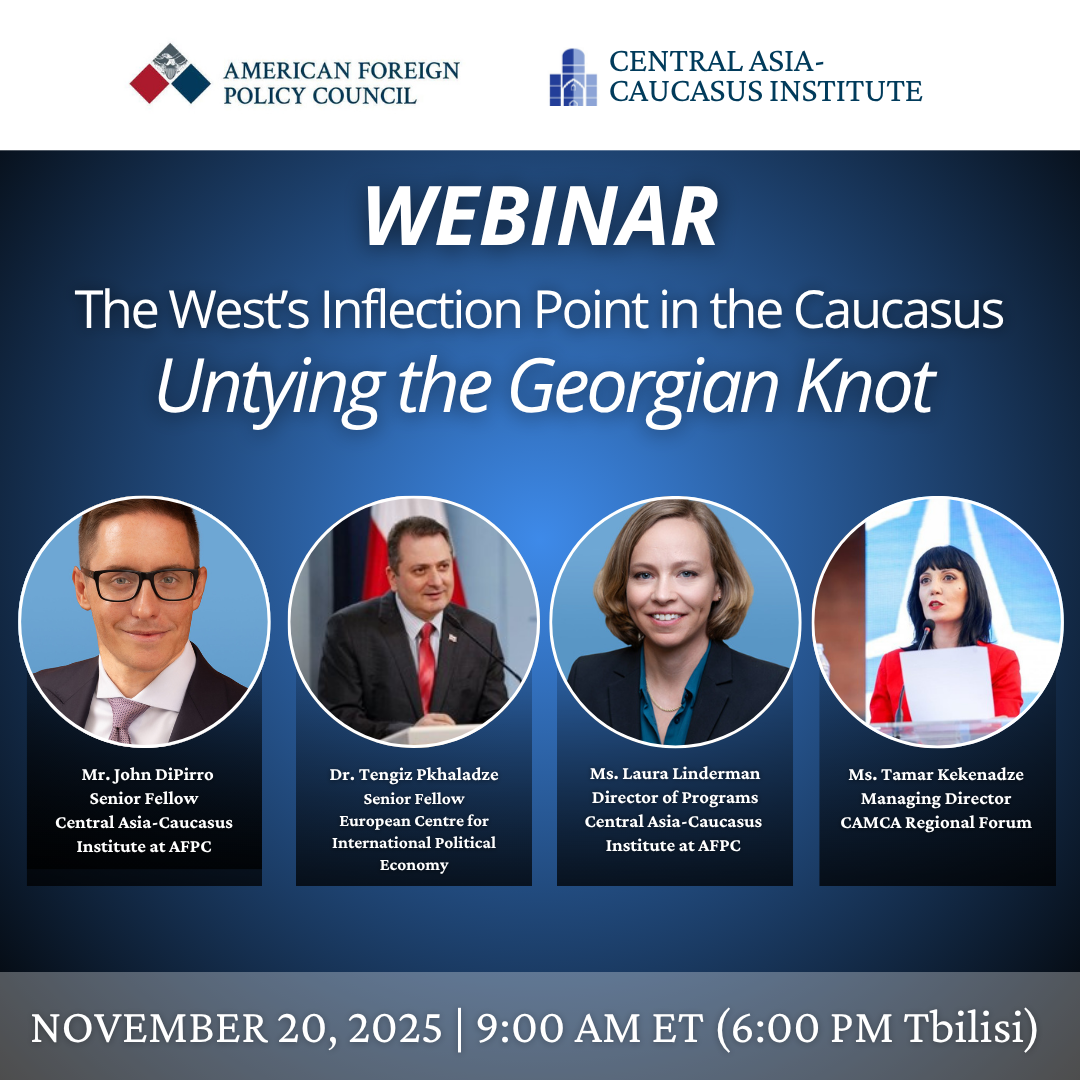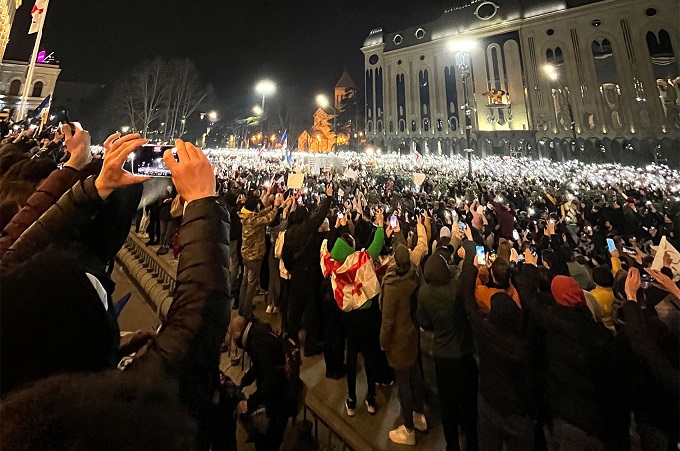As head of the Central Asia and Caucasus program at the American Foreign Policy Council, Linderman provided expert analysis on Georgia's democratic regression, describing recent actions by the Georgian Dream party as showing "alarming signs of autocracy."
Please read more here.
RELATED PUBLICATIONS:




